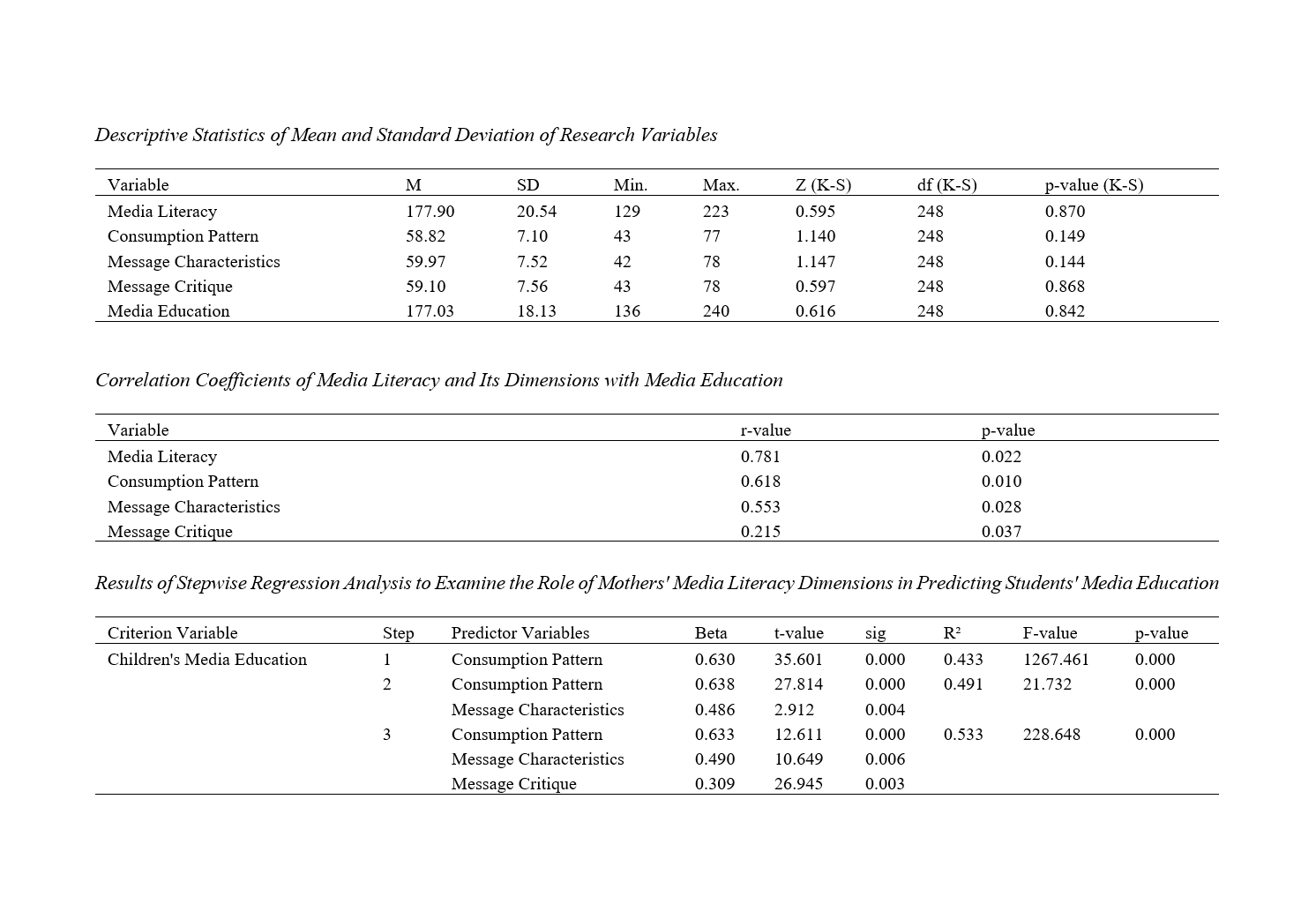The Impact of Mothers' Media Literacy on the Media Education of Adolescents Aged 14-17 in District 5 of Tehran
Keywords:
Media Literacy, Media Education, Message Critique, Responsible Use, Mothers, High School StudentsAbstract
Objective: The present study aimed to determine the relationship between mothers' media literacy and the media education of their children aged 14-17.
Methods and Materials: The present study was a descriptive-analytical cross-sectional study. Multistage cluster sampling was conducted. A total of 249 students from public middle and high schools in District 5 of Tehran, who were enrolled in the 2022-2023 academic year, were selected. The demographic characteristics questionnaire, Tammen's (1995) media literacy questionnaire, and a researcher-developed media education questionnaire were distributed, completed, and collected in compliance with research ethics. Data were analyzed using Pearson correlation, multiple regression analysis, t-test, and path analysis methods via SPSS 26 and PLS software.
Findings: The correlation results indicated a statistically significant positive relationship at the 95% confidence level between mothers' media literacy and the media education of high school students in District 5 of Tehran (r = 0.593, P < 0.05). A direct and significant relationship was found between consumption patterns and deep awareness (r = 0.357, P < 0.05) and responsible use (r = 0.380, P < 0.05). Additionally, there was a direct and significant relationship between message characteristics and deep awareness (r = 0.380, P < 0.05) and responsible use (r = 0.366, P < 0.05). A significant relationship was also observed between mothers' ability to criticize message content and their children's deep awareness (r = 0.283, P < 0.05) and responsible use (r = 0.109, P < 0.05).
Conclusion: Mothers' media literacy and its components (consumption patterns, message characteristics, and message critique) are recognized as influential variables in the media education of their children.
Downloads

Downloads
Additional Files
Published
Submitted
Revised
Accepted
Issue
Section
License
Copyright (c) 2024 Parisa Saeedfar, Seyed Naser Hejazi, Shapour Behyan (Author)

This work is licensed under a Creative Commons Attribution-NonCommercial 4.0 International License.








